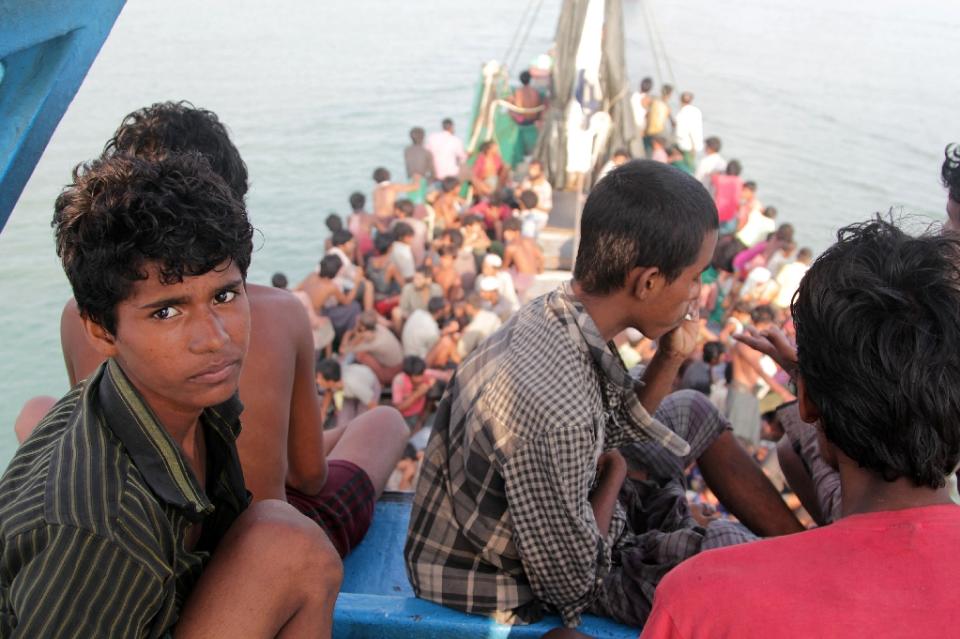Islamic Humanitarianism
"As we came close, I was shocked. I saw them crammed onto the boat. It left me speechless, and I broke down in tears as I watched them screaming, waving their hands and clothes."
"I could not let them die, because they are also human beings. Just like me. I am grateful to have saved hundreds of lives."
Razali Puteh, fisherman, Aceh, east Indonesia
 |
"This is not an ASEAN problem. This is a problem for the international community."
"[Malaysia and Indonesia agree to offer temporary shelter] provided that the settlement and repatriation process will be done in one year by the international community."
Malaysian Foreign Minister Anifah Aman
"A year is the maximum. But there should be international co-operation."
Indonesian vice-president Jusuf Kalla
Over three thousand people representing Rohingya Muslims, persecuted in Myanmar where they are seen as illegal Bangladeshi economic migrants, though many have lived there for generations, have boarded overcrowded boats, landing on the shores of southeast Asian countries. Thousands more are estimated to be stranded at sea. A crackdown on human traffickers has led ship captains and smugglers to abandon their boats, and those aboard, to the mercy of the sea.
Leaving the desperate migrants fleeing misery, poverty and violence in Myanmar to fend for themselves, without food, without water, without medical attention, without hope. Malaysia called an emergency meeting with the foreign ministers of Indonesia and Thailand. They had already stated they had no intention of taking in any of the migrants; they provision the incoming boats with food and water and send them back to sea.
Now they have agreed to offer temporary shelter. With the proviso that the international community must take up settlement of the refugees and alternately undertake repatriation. When these countries were hit with the tragic disaster of a tsunami in 2004 after a massive earthquake, the international community was quick to come to their aid; the deaths of hundreds of thousands of people appalled the world community and humanitarian aid was swift to appear.
Indonesia in particular took to charging humanitarian groups customs and duties on the emergency supplies they were bringing in to help save lives. At that time the world saw no line of separation between unaffected nations and those for whom the devastating earthquake-tsunami disaster impacted to create mass death; foreign government reaction was swift and positive, with donations pouring in from all over the world.
This, on the other hand, is indeed an ASEAN dilemma, one which should be solved regionally, with an uptake of refugees, giving them the opportunity to settle in countries where their religion, for which they suffered under Buddhist rule in Myanmar, would not be a discriminatory issue in Malaysia and Indonesia, two majority-Muslim countries with vast populations.
The Aceh fisherman who originally came across the migrant boat holding over 430 weak and hungry people didn't react by ignoring them in the belief that it wasn't his business to save them but that of his government's. He urged them to wait aboard their wood trawler, and left to bring back other fishing boats to pull the trawler to shore, and its desperate cargo to haven.
Labels: Human Relations, Indonesia, Islam, Malaysia, Refugees, Social Failures

<< Home